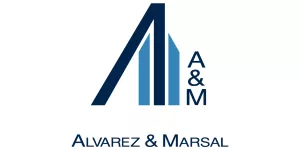On 23 November 2022, the Dutch Ministry of Finance issued a new
Decree outlining its position on the
application of tax treaties and domestic withholding taxes in light
of hybrid situations caused by US 'check-the-box'
elections.
To clarify the Ministry of Finance's position, an example is
provided of a disregarded Dutch BV that pays interest, dividends or
royalties to a disregarded US LLC held by a US Inc. The payment is
visible for Dutch tax purposes, but not for US tax purposes due to
the disregarded nature of the BV and LLC.
The clarification subsequently reads that the indirect participant
(in this case the US Inc.) is recognised as the recipient for Dutch
tax treaty and domestic withholding tax purposes provided that the
Dutch withholding tax agent (in this case the Dutch BV) can
demonstrate that the income from which the dividend, interest or
royalty payment is made, is or has been considered income of the
indirect participant for domestic (in this case US) tax
purposes.
This clarification is relevant as it can rule out possible
discussions with the Dutch tax authorities on:
- who the recipient of a dividend, interest or royalty payment is when applying a tax treaty concluded by the Netherlands;
- who the recipient of a dividend is when applying the Dutch domestic dividend withholding tax exemption; and
- who the recipient of an interest or royalty payment is when applying an escape from the Dutch conditional withholding tax that would otherwise apply to such payment in the described (hybrid entity) situation.
These clarifications are welcome. Item (1) is relevant in light
of, for example, Article 24, Paragraph 4, of the Netherlands-US tax
treaty. Item (3) is of interest, as this escape was previously not
available in the hybrid situation described in the Decree without a
significant risk of being disputed by the Dutch tax
authorities.
Together with this new Decree, the Dutch Ministry of Finance has
retracted a Decree from 1997 covering tax treaty access in case of
payments to entities that are viewed as opaque by the Netherlands,
but transparent by another jurisdiction. The retraction is
motivated by stating that most Dutch tax treaties and domestic
withholding taxes nowadays contain hybrid provisions to tackle this
issue. The implications of this retraction should be reviewed for
structures that previously relied on the 1997 Decree for tax treaty
access / benefits.
The content of this article is intended to provide a general guide to the subject matter. Specialist advice should be sought about your specific circumstances.



